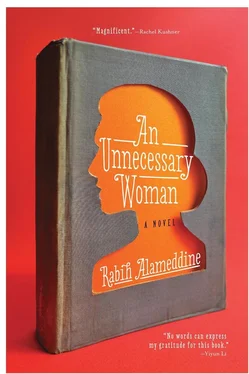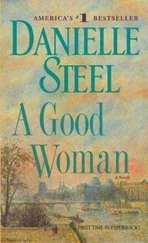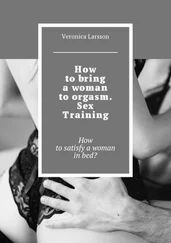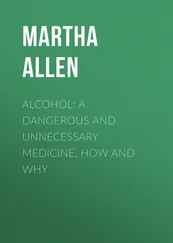Schulz’s literary oeuvre is tantalizingly tiny: some essays, a few articles, and two books of short stories — but what stories, what a brave new world he showed us. Unfortunately for us, and for him, his own story became more important than his stories. How he died, who he was, and what he was took center stage in the passion play. In 1941 Drohobycz fell to the Germans. When Schulz was forced to relocate to the ghetto, he hid his life’s work with colleagues and acquaintances: drawings, paintings, and two unpublished manuscripts, which possibly included a novel called Messiah . They have all disappeared, like Walter Benjamin’s suitcase.
The Gestapo officer in charge of the Jewish labor force, Felix Landau, decided that Bruno was no ordinary Jew, but a necessary one.
Think on the term for a moment.
What is a necessary human?
What saved Bruno’s life, or, I should say, what delayed his death, was that Landau fancied himself a lover of art. He forced the necessary Jew to paint murals for his son’s bedroom depicting scenes from beloved fairy tales. Landau kept Schulz alive until one day in November 1942, when Karl Günther, a rival Gestapo officer, killed Schulz to get back at Landau, who’d killed a dentist Günther favored — a necessary dentist, one presumes.
Günther said to Landau, “You killed my Jew — I killed yours.”
Worse yet, a German filmmaker, with the help of the residents of Drohobycz, a Ukrainian city now, was recently able to trace the murals Schulz made for Landau’s son. From beneath many a layer of whitewash emerged the kings and queens and fairies and dwarves of Bruno’s imagination. The artist sprang to life once more, if only briefly, before being disappeared again. Three people from Yad Vashem, the Holocaust museum in Israel, pried fragments of the murals off the walls, stole them away in the middle of the night. The museum claimed moral rights to my hero’s work. Tfeh!
Bruno Schulz was shot twice in the head by a Nazi.
Federico García Lorca was shot once in the head by a fascist and then twice in his behind, after he had fallen forward, to mark him as a homosexual.
When I read Schulz, I am baptized with Lorca’s dark water.
In the museum, the Lebanese and not the Israeli, I contemplate an aged if not antediluvian throne. According to biblical historians, God caused the world to flood forty-five hundred years ago, so no, not quite antediluvian.
I hear the click of heels behind me, but I don’t look back. The macaroni, at least seven, most of them women. The screeching sneakers of the two boys rush toward them. All this I hear, not see. The boys don’t seem to be seeing either, since they both run straight into the pod of Italians. I hear bodies bumping, Italian cursing, but no falls or tumbles. I turn and watch chaos unfold. The Italians chide the boys in bad English, the mothers chide the Italians for hurting the boys’ feelings, the Italians berate the mothers for their misbehaving children, which produces Lebanese cursing. No guard, referee, or anyone associated with the museum makes an appearance.
This culture clash does not concern me.
The groups separate. The Italians glare arrogantly at the Lebanese-cum-Americans and walk away. The mothers regard their nemeses suspiciously, as if they are a contagious caravan of the seven deadly sins. When she’s sure the sinners aren’t looking, one of the mothers backhands her son’s head. He winces a few seconds after the fact. She flips her dark hair, which falls in sculpted waves to her shoulders, and leads her friend away from the boys. The slap wasn’t hard, but the boy seems shocked, and neither boy is sure what to do. They face each other where the women have discarded them. It is the unhit child who begins, who inducts his friend. The hit boy seems bewildered. His friend’s lips tremble, his breathing is jagged. Whether consciously or not, the hit boy follows suit in the exact order: lips, breath, welling eyes. They drop to the floor, sit on the stone, and cry — well, weep. As loud as their earlier ruckus was, this sorrow is practically noiseless. In the hall of the ancients the intermittent sniffling of young boys echoes.
The boys don’t touch, don’t hug, don’t try to console each other. They simply sit on the floor and share a cry.
I too am inducted into a sea of feelings. I am witness to an innocence that has never been mine, to a childhood that I missed and miss. No nostalgia is felt as keenly as nostalgia for things that never existed.
I am able to control my lips that want to quiver, but my breathing betrays me.
I move quickly behind the stairs so no one can see me. Though I am still in the main museum hall, the tawny light turns grayish, and the hidden air feels damper with its taste of copper. Under the landing is an altogether different universe. Tears carve a couple of furrows in each cheek. Terror creeps from chest to limbs; I’m frightened because I seem to be losing all semblance of composure and can’t figure out why. Sorrow settles on my heart like a vulture.
What’s going on?
I inhale from deep in my belly. I can’t allow sobs to escape these lips. Like the boys, I need to remain noiseless. To my right an oblong of dense darkness attracts my attention. I sneak into the room, lean against the wall next to the door, and cry. I can discern walls but not their color. The room’s temperature isn’t a pleasant eighteen degrees centigrade — no, not pleasant. The febrile heat turns the room into humid summer, August in December. I expect to be attacked by mosquitoes at any moment. My throat is parched. I sweat. I’m overdressed for August, of course. I can’t breathe as deeply because of a suffocating smell of paraffin and tobacco. I stroke the foldable umbrella for comfort. The fact that it’s wet as well does comfort me, as does the room’s atrocious odors.
I must hold on to my sanity. I must compose myself and leave this oppressive place.
I slap my head, once, twice — a habit to alleviate stress, or to make myself think when I’m acting stupid, just a slap on the top of my head. I run my fingernails through my hair, pull it back, and retie the scarf. I fan my face with the palm of my hand. The sweating, the wetness, seems to be contained in the triangle between my two armpits and my navel. I hold my handbag against it, take a breath of courage, and head out into the museum’s light, which by contrast is now blinding. I wish I’d thought to bring sunglasses.
The hall is empty, no sign of the boys, their mothers, or their Italian nemeses. This is how I like my museum, empty and desolate and all mine, but I can’t linger anymore.
The guard who always looks amused looks concerned. “Are you all right, Tante?” he asks.
I consider spouting the usual “I’m fine” refrain and continuing my rush through the exit, but I halt. He deserves better.
“I will be,” I say, turning to face him. “I came here to escape some family problems, but wasn’t able to.” I hesitate, notice that I’m stuttering slightly. “Everything will be all right, though.”
He nods slowly but assuringly, and relays the obligatory Lebanese homilies about family: its necessity, its insanity, its quandary, its mystery, and its comfort.
After the indoor heat, the cool air chills my bones; the drizzle has halted and is now hanging, damp in the air. I descend the outside stairs, cross the heavily trafficked street, and begin to walk. I don’t care where or in what direction. I need to circulate my blood.
Why can’t I be like my museum guard? Normal and imperturbably happy he seems — normal and belonging to the world he resides in.
Henri Matisse once said, “It has bothered me all my life that I do not paint like everybody else.”
I love this quote, love the fact that the most incandescent painter of the twentieth century felt this way. Being different troubled him. Did he genuinely want to paint like everybody else, to be like everybody else? Did he truly wish to belong?
Читать дальше












